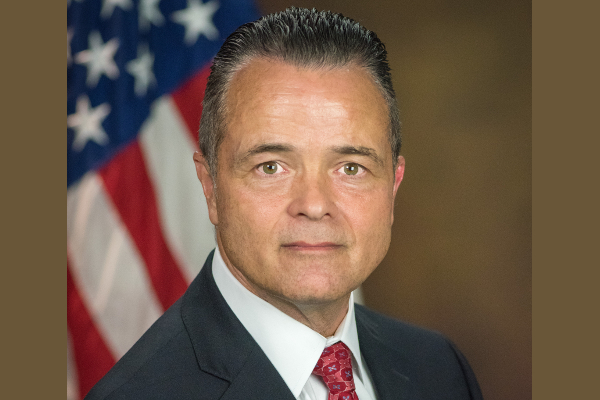 WASHINGTON – In a brief filed last week, attorneys for the U.S. government reiterated their assertion that the plaintiffs in Woodhull Freedom Foundation v. U.S. – a lawsuit challenging the constitutionality of the Allow States and Victims to Fight Online Sex Trafficking Act (“FOSTA”) – all lack standing to challenge the Act, because they don’t “face a credible threat of prosecution” under the law.
WASHINGTON – In a brief filed last week, attorneys for the U.S. government reiterated their assertion that the plaintiffs in Woodhull Freedom Foundation v. U.S. – a lawsuit challenging the constitutionality of the Allow States and Victims to Fight Online Sex Trafficking Act (“FOSTA”) – all lack standing to challenge the Act, because they don’t “face a credible threat of prosecution” under the law.
It’s to be expected that the government would largely restate the same arguments it made in district court, since the district court concurred with the defense arguments, dismissed Woodhull’s complaint and denied the plaintiffs’ request for a preliminary injunction preventing enforcement of FOSTA. The government doesn’t need to make any new arguments; it just needs to persuade the U.S. Court of Appeals for the D.C. Circuit that the same arguments it has already made should prevail and that the district court did not err in dismissing the complaint.
“The district court denied plaintiffs’ motion for preliminary injunction and dismissed the complaint, finding that plaintiffs lacked standing because they did not face a credible threat of prosecution as a result of FOSTA,” the government stated in its brief. “The district court noted several ‘key textual indications that make clear that FOSTA targets specific acts of illegal prostitution – not the abstract topic of prostitution or sex work,’ and thus did not apply to plaintiffs’ intended activities.”
As the government sees it, there’s not even a theoretical possibility of the plaintiffs’ activities being targeted by a criminal prosecution or civil suit filed under FOSTA.
“Plaintiffs’ intended conduct is worlds away from the sex trafficking activities that led to the enactment of FOSTA, and it is manifestly not proscribed by § 2421A,” the government asserted in its brief. “Plaintiffs advocate for the health and safety of sex workers… and archive internet materials on behalf of organizations such as the National Archives and the Library of Congress. Such activities cannot plausibly be claimed to constitute owning, managing, or operating an interactive computer service ‘with the intent to promote or facilitate the prostitution of another person’ within the meaning of § 2421A. Plaintiffs insist that § 2421A targets ‘speech related to prostitution’, or the promotion of prostitution ‘as a general concept’, but this assertion is entirely divorced from § 2421A’s actual text.”
The government also argued that the plaintiffs’ activities all fall “outside the scope of FOSTA’s other statutory amendments” as well.
“FOSTA amended 18 U.S.C. § 1591, a pre-existing federal criminal prohibition on sex trafficking, to define a previously undefined phrase in the statute (‘participation in a venture’) to mean ‘knowingly assisting, supporting, or facilitating’ a violation of § 1591,” the government wrote. “Plaintiffs’ conduct was not sex trafficking under § 1591 prior to FOSTA, and plaintiffs’ conduct has not become sex trafficking under § 1591 now that FOSTA clarified a previously-undefined phrase in the statute as including a knowledge standard.”
The government also asserted that the plaintiffs have nothing to worry about stemming from the changes made to Section 230 of the Communications Decency Act under FOSTA.
“FOSTA amended Section 230 to clarify that its immunity does not extend to three types of judicial actions involving criminal conduct,” the government wrote in its brief. “(1) civil actions under § 1595 ‘if the conduct underlying the claim constitutes a violation of section 1591’; (2) ‘prosecution[s] brought under State law if the conduct underlying the charge would constitute a violation of section 1591’; and (3) ‘prosecution[s] brought under State law if the conduct underlying the charge would constitute a violation of § 2421A of Title 18, and promotion or facilitation of prostitution is illegal in the jurisdiction where the defendant’s promotion or facilitation of prostitution was targeted.’”
“To lose their Section 230 immunity, therefore, a party’s conduct must ‘constitute a violation of section 2421A’ or § 1591,” the government continued in the brief. “Because plaintiffs’ conduct does not even arguably violate § 2421A or § 1591, plaintiffs cannot credibly fear prosecution as a result of FOSTA’s amendments to Section 230. The district court correctly held that plaintiffs lack an Article III injury-in-fact.”
While it’s arguably good news that lawyers representing the government are of the opinion that nothing the Woodhull Freedom Foundation, Human Rights Watch, The Internet Archive, Eric Koszyk and Jesse Malley do is potentially subject to prosecution or litigation under FOSTA, it’s important to understand that their opinion isn’t binding on other parties.
In other words, just because an Assistant Attorney General (Joseph H. Hunt, pictured above), one U.S. Attorney and two staff attorneys from the Dept. of Justice believe this is the correct reading of FOSTA, it doesn’t mean a different set of government attorneys (or non-government attorneys, in the context of a civil lawsuit filed claiming violations of the Act) won’t see things differently.
The plaintiffs’ challenge to FOSTA remains important, even if the appellate court upholds the district court’s dismissal of the case. Having two courts on-record holding that merely discussing prostitution, or aiding sex workers in ways that don’t constitute promotion or facilitation of prostitution (or any of the other activities the plaintiffs engage in) violates FOSTA should ease the process of obtaining dismissals of meritless prosecutions and civil complaints which may be filed under FOSTA in the future.
Of course, the fact that it should be easy to get such complaints dismissed in the future for litigants who are similarly situated to the plaintiffs in this case is going to be cold comfort to any person or entity which gets prosecuted or sued under FOSTA in the years to come. Among other things, it typically costs a significant amount of money to defend yourself against a criminal prosecution or civil suit, unless you happen to be represented pro bono, or by public defenders in a criminal trial context.
There’s also the question of harm done to one’s reputation which can flow from merely being accused of violating something called the “Allow States and Victims to Fight Online Sex Trafficking Act.” Even if the complaint against you is eventually thrown out, having your name appear in headlines next to the words “human trafficking” is inherently damaging – in no small part because the first set of headlines in a case is generally paid more attention than any retractions or corrections which may be issued later.
Don’t take my word for it on that last one; ask Robert Kraft.












